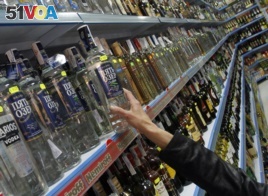10 July, 2017
This is What's Trending Today.
Many people around the world have been learning about Eva Ekeblad, a Swedish food scientist. She was born on July 10, 1724. Monday would have been her 293rd birthday.
Ekeblad is the subject of the latest "doodle" to appear on the search engine Google's home page. Google doodles are drawings that celebrate a person or event. They appear as part of Google's official logo.
On Monday, Ekeblad was the most-searched person or topic on Google. Her doodle included a cutting board used for cooking. A potato and potato flour were on the board. The peeled skins of a potato spelled out the word "Google."
So, why potatoes?
It turns out that, more than 200 years ago, Ekeblad began working to make potatoes a more important part of the human diet. For a long time, potatoes were not thought to be good for humans to eat.
Ekeblad heard that potatoes were being used to make alcohol in Germany. She then started growing and experimenting with potatoes herself. And in 1746, she discovered that potatoes could be turned into something similar to flour. This required boiling, mashing and drying the potatoes.

The work Ekeblad did with potatoes resulted in Vodka, a product people enjoy today.
As a result of Ekeblad's work, people began using potatoes to make things like bread and even alcohol. Today, many well-known vodkas are still made with potatoes.
Ekeblad's research on potatoes helped reduce famine in Sweden. Using potatoes instead of cereal grains to make alcohol meant more grains were available to make bread and other food.
When she was just 24 years old, Ekeblad submitted her work to the Royal Swedish Academy of Sciences. She became its first female member. It would be 200 years before another woman would be accepted into the society.
Many Twitter users learned about Ekeblad for the first time on Monday. They praised her work.
Google users in North America, parts of South America, Australia, Indonesia, India, Russia and parts of Europe saw the Eva Ekeblad doodle.
Sometimes, though, Google makes doodles that only appear in a few countries. For example, doodles in recent weeks celebrated Argentina National Day; the 660th anniversary of the Charles Bridge in Prague, Czech Republic; the Japanese summer festival called Tanabata; and British airplane pilot Amy Johnson.
To look at the entire archive of Google doodles, go to google.com/doodles#archive.
And that's What's Trending Today.
I'm Dan Friedell.
Dan Friedell wrote this story for VOA Learning English. Ashley Thompson was the editor.
What do you think about Eva Ekeblad's discovery? We want to know. Write to us in the Comments Section or on 51VOA.COM.
____________________________________________________________
Words in This Story
mash – v. to make (something, such as a type of food) into a soft mass by beating it or crushing it
vodka – n. a strong, clear alcoholic drink that is originally from Russia
doodle – n. to draw something without thinking about what you are doing
logo – n. a symbol that is used to identify a company and that appears on its products
famine – n. a situation in which many people do not have enough food to eat